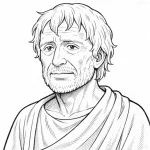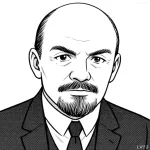“He who is brave is free.”

- c. 4 BC – AD 65
- Roman
- Philosopher, Statesman, Dramatist, Stoic Thinker, Advisor to Emperor Nero
table of contents
Quote
“He who is brave is free.”
Explanation
Seneca asserts that true freedom is not a political condition but a state of mind, and it belongs only to the brave. For the Stoics, courage is the foundation of all virtue, and freedom means being ruled by reason, not fear or desire. The brave person is not enslaved by public opinion, wealth, pain, or even death. By mastering oneself, one becomes independent of external forces, and thus genuinely free.
In the context of ancient Rome, where legal and social freedoms were unequally distributed, this Stoic idea was radical: a slave could be freer than a king, if the king was a prisoner of his passions and the slave was governed by virtue. Seneca’s definition of freedom centers on inner sovereignty, where the courageous person possesses moral autonomy, unshaken by fortune or misfortune alike.
Today, this idea speaks to anyone seeking liberation from anxiety, addiction, or societal pressure. We are often told that freedom is the ability to do whatever we want—but Seneca teaches that freedom is the ability to do what is right, even in adversity. The brave person is free because no fear can compel them, and no temptation can enslave them. In courage lies the key to a life that is both dignified and unshackled.
Would you like to share your impressions or related stories about this quote in the comments section?



